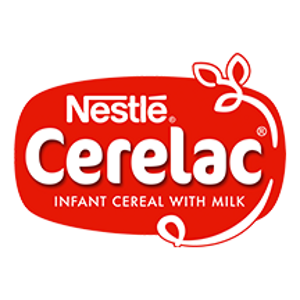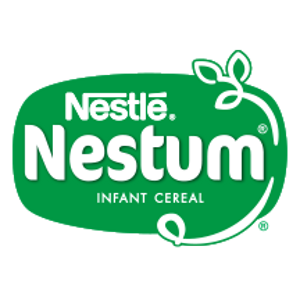
Antenatal care: Why is it so important for expectant mothers?
If you want to carry on with a healthy and happy pregnancy, it is important to have antenatal care. Click here to learn more about it.
Embarking on the transformative journey of motherhood is a remarkable chapter, and at the core of this narrative is the essential concept of antenatal care. It is a cornerstone in maternal health and refers to the comprehensive medical attention and support provided to expectant mothers during pregnancy.
This critical phase is not merely about monitoring the physical well-being of both the mother and the growing life within but extends to fostering emotional and mental resilience for the impending arrival.
In Baby & Me, we'll navigate the importance of antenatal care, elucidating the myriad ways it contributes to a healthy pregnancy, childbirth, and the well-being of both mother and baby.
From routine check-ups and invaluable guidance on nutrition to addressing potential complications, our journey into the realm of antenatal care aims to empower and inform, ensuring that every expectant mother is equipped with the knowledge and support necessary for a thriving pregnancy.
What is antenatal care?
Antenatal care, often referred to as prenatal care, is a comprehensive healthcare approach tailored to support expectant mothers throughout their pregnancy journey. This crucial facet of maternal healthcare encompasses a series of medical check-ups, screenings, and educational sessions designed to monitor and enhance the well-being of both the mother and the developing fetus.
Antenatal care involves regular visits to healthcare professionals who monitor the mother's health, tracking vital indicators such as blood pressure, weight gain, and fetal growth. These check-ups play a pivotal role in identifying and addressing any potential complications early on, ensuring a healthier pregnancy.
It also includes a series of screenings and tests to detect and manage potential complications, such as gestational diabetes, preeclampsia, or genetic abnormalities. Early identification allows for timely intervention, reducing the risk of complications during pregnancy and childbirth.
Beyond the physical aspect, antenatal care provides valuable educational support. Expectant mothers gain insights into various aspects of pregnancy, childbirth, and postpartum care. This knowledge empowers them to make informed decisions about their health and that of their newborns.
Recognizing the emotional and mental aspects of pregnancy, antenatal care also addresses the psychological well-being of expectant mothers. Open discussions about concerns, stressors, and mental health challenges ensure a holistic approach to maternal care.
In essence, antenatal care is a holistic and proactive approach to safeguarding the health and well-being of both mother and child. By combining medical vigilance, nutritional guidance, and emotional support, antenatal care sets the stage for a healthier pregnancy and a positive transition to motherhood.

Importance of antenatal care
Antenatal care stands as a cornerstone in ensuring a healthy pregnancy and a positive outcome for both mother and baby. Its significance resonates across various dimensions, contributing to the overall well-being of expectant mothers and fostering a thriving environment for fetal development.
One of the primary benefits of antenatal care is the early detection and management of potential complications. Regular check-ups and screenings allow healthcare professionals to identify issues such as gestational diabetes, high blood pressure, or fetal abnormalities in their nascent stages. Timely intervention significantly reduces the risk of complications during pregnancy and childbirth.
Antenatal care is designed to monitor the physical health of expectant mothers, ensuring that they receive appropriate medical attention and support. From managing weight gain to addressing nutritional needs, this care regimen contributes to the overall health and resilience of mothers, enhancing their ability to cope with the demands of pregnancy.
Through routine ultrasounds and monitoring of fetal growth, antenatal care places a spotlight on the well-being of the developing baby. Healthcare professionals can identify and address any potential issues, fostering an environment conducive to healthy fetal development.
It also serves as an invaluable educational platform, so expectant mothers receive guidance on various aspects of pregnancy, childbirth, and postpartum care. Armed with knowledge, they can actively participate in decision-making regarding their health and that of their infants, promoting a sense of empowerment and confidence.
But pregnancy is not only a physical journey but also an emotional one. Antenatal care recognizes the importance of mental health and provides a supportive environment for expectant mothers to express concerns and seek guidance.
By prioritizing early detection, maternal health optimization, and holistic support, antenatal care lays the foundation for a successful and fulfilling pregnancy, ensuring a brighter start for the newest member of the family.
Who to consult about antenatal care?
Navigating the intricate landscape of antenatal care requires a collaborative approach involving various healthcare professionals. Knowing who to consult ensures that expectant mothers receive comprehensive and specialized care throughout their pregnancy journey.
- Obstetrician/Gynecologist (OB/GYN): The primary point of contact for antenatal care is often an obstetrician or gynaecologist. These specialized physicians are trained to handle the medical aspects of pregnancy, from conducting routine check-ups to managing any complications that may arise. Establishing a strong rapport with an OB/GYN ensures consistent and personalized care throughout the pregnancy.
- Certified Nurse-Midwife (CNM): These are healthcare professionals who specialize in providing care to expectant mothers during pregnancy, labour, and postpartum. They offer a more holistic approach, combining medical expertise with a focus on emotional and social well-being. Some women may choose to receive care from a CNM, especially if they are seeking a more personalized and less intervention-focused approach to childbirth.
- General Practitioner/Family Medicine Physician: In some cases, women may continue to receive antenatal care from their general practitioner or family medicine physician, particularly if they have an established relationship with these healthcare providers. These professionals can coordinate care and, if necessary, refer expectant mothers to specialists for specific aspects of antenatal care.
- Maternal-Fetal Medicine Specialist: For high-risk pregnancies or when complications are identified, a maternal-fetal medicine specialist may be involved. These specialists have expertise in managing complex pregnancies and can provide advanced diagnostics and interventions when needed.
Choosing the right healthcare professionals for antenatal care depends on individual preferences, health considerations, and the level of support desired. Collaborating with a team of qualified and compassionate professionals ensures that expectant mothers receive comprehensive care that addresses both their medical and emotional needs.

Antenatal care is not merely a medical routine; it's a holistic embrace of the physical, emotional, and mental dimensions of pregnancy. The early detection of complications, optimization of maternal health, and promotion of fetal well-being all contribute to a positive and confident approach to childbirth.
As expectant mothers embark on this transformative voyage, the guidance received during antenatal care becomes a beacon, illuminating the path toward a joyous and healthy arrival of the newest family member.
May the insights gained here serve as a compass, steering every mother towards a pregnancy experience filled with strength, support, and the promise of a bright and beautiful beginning.

Gain a better understanding of your child's development with the help of our stages
































